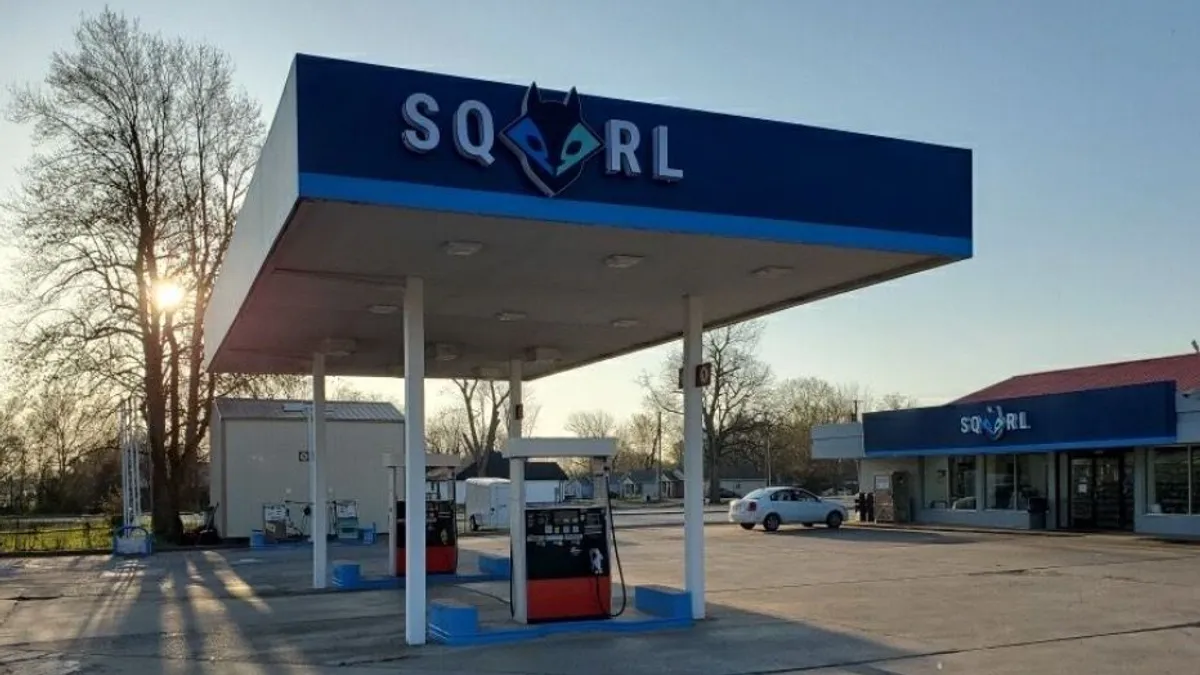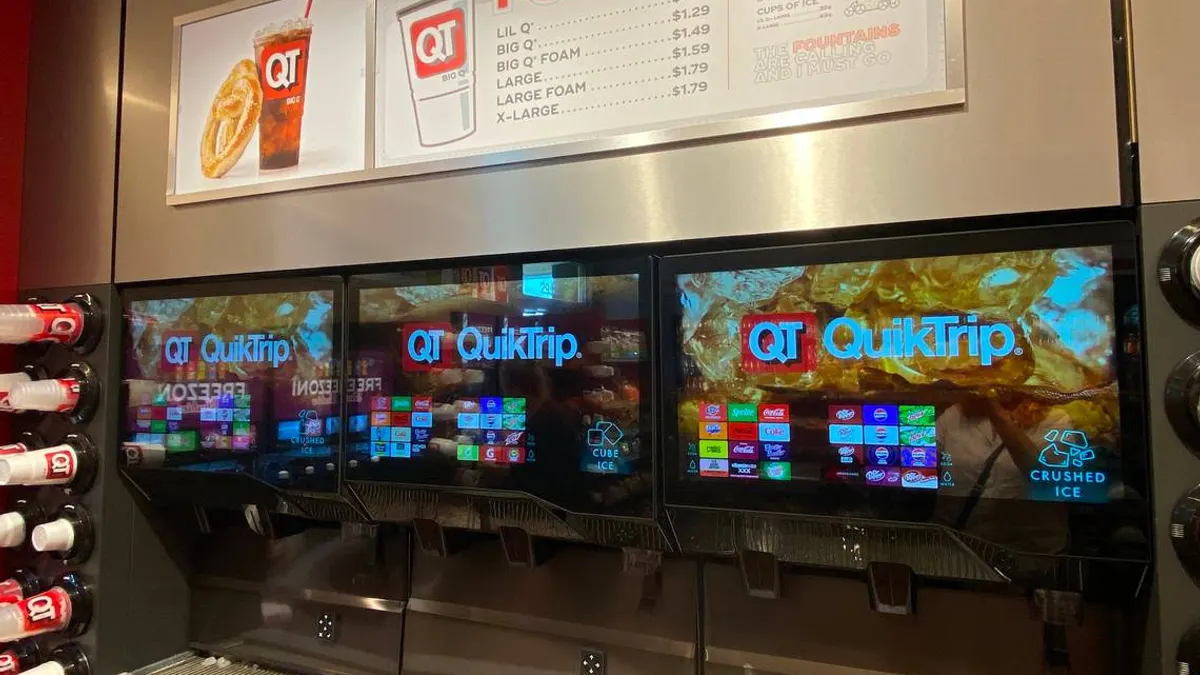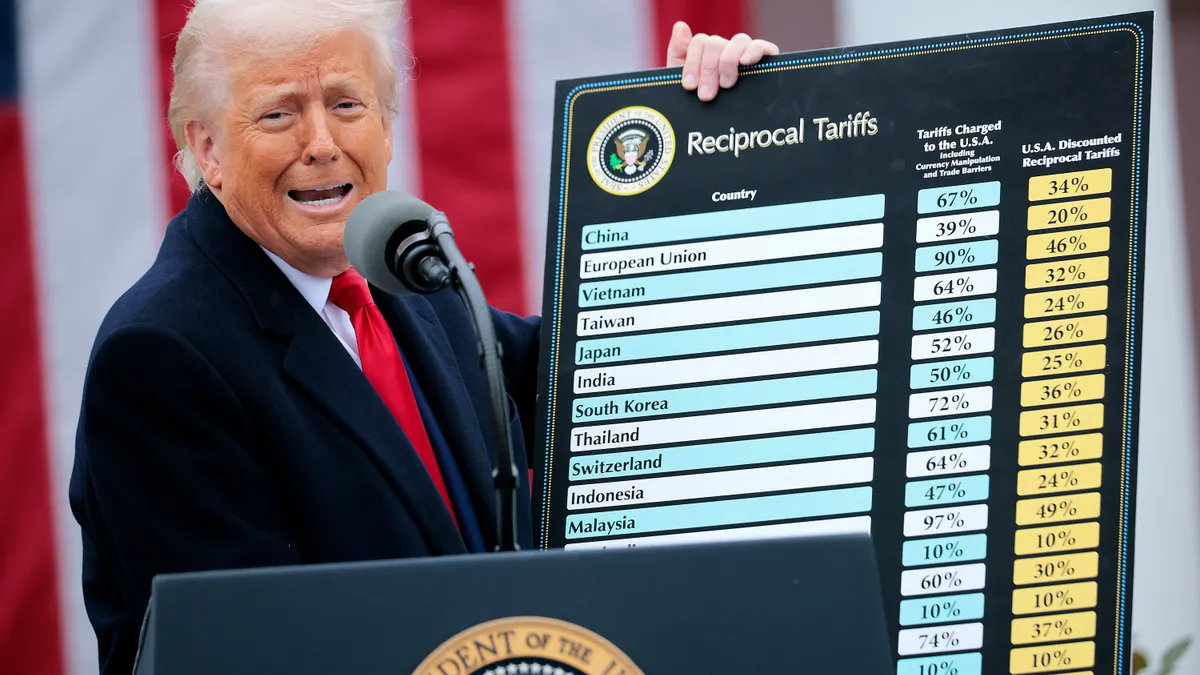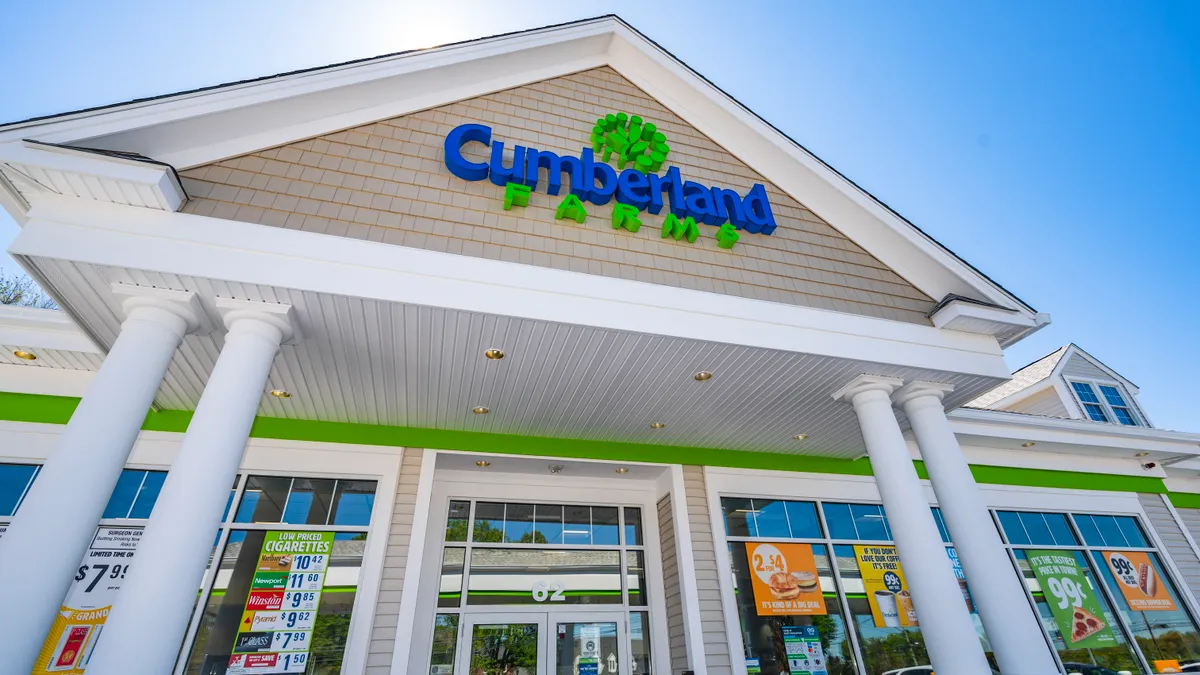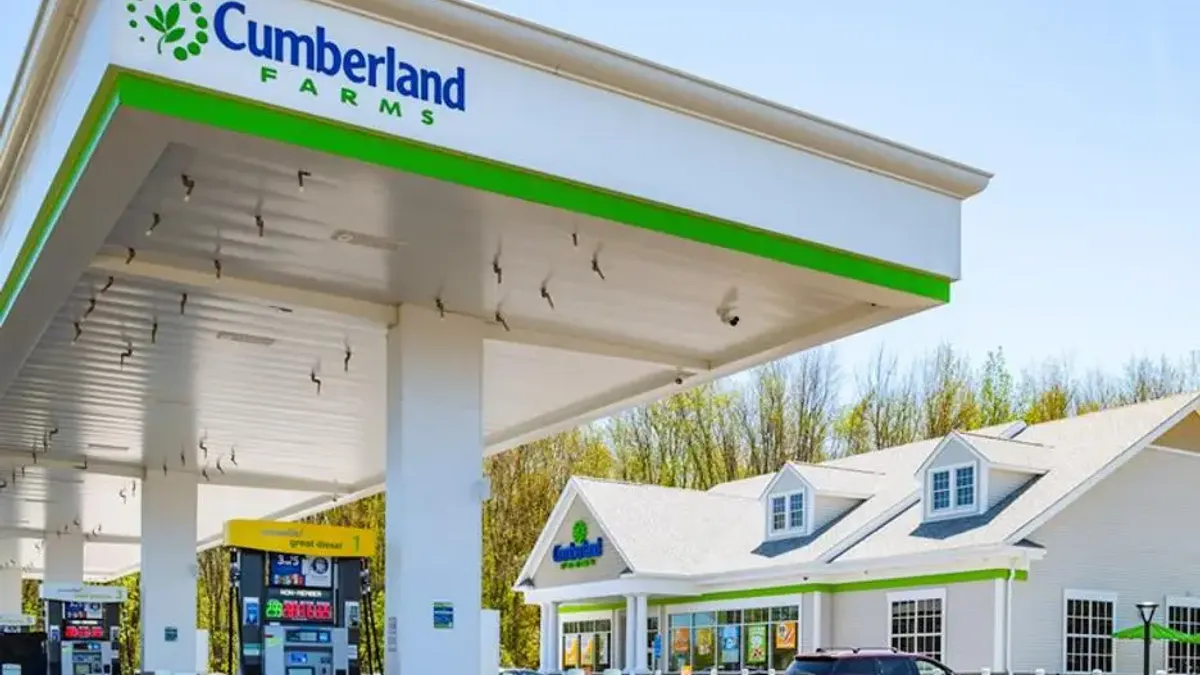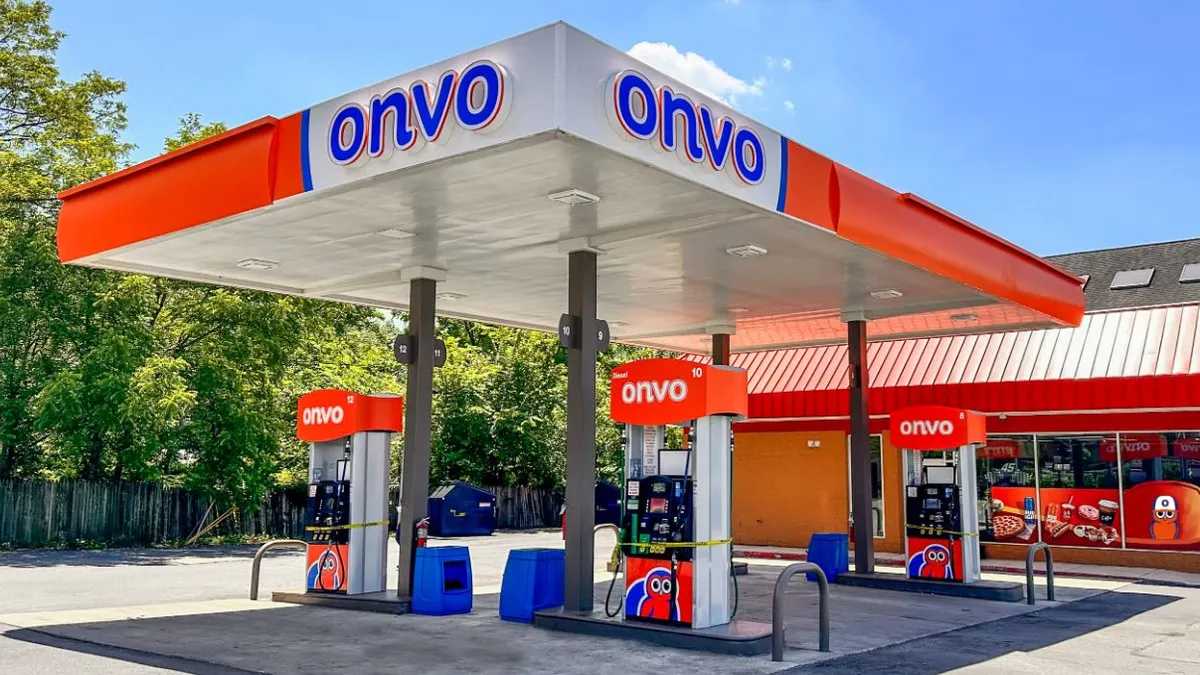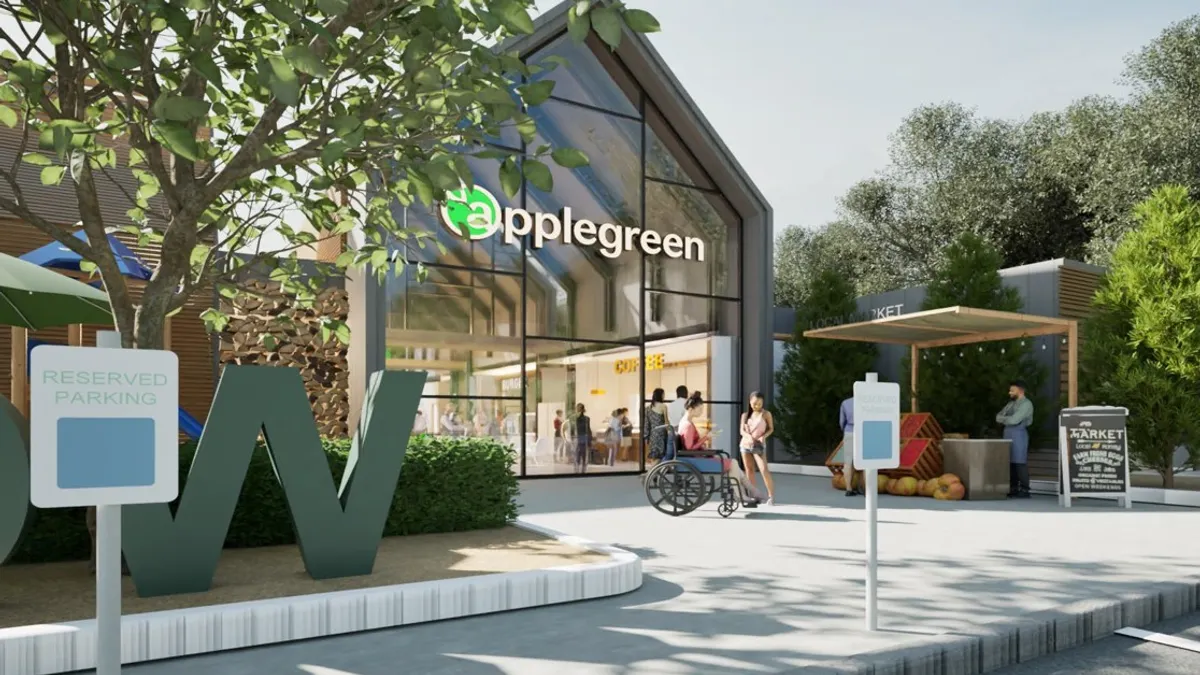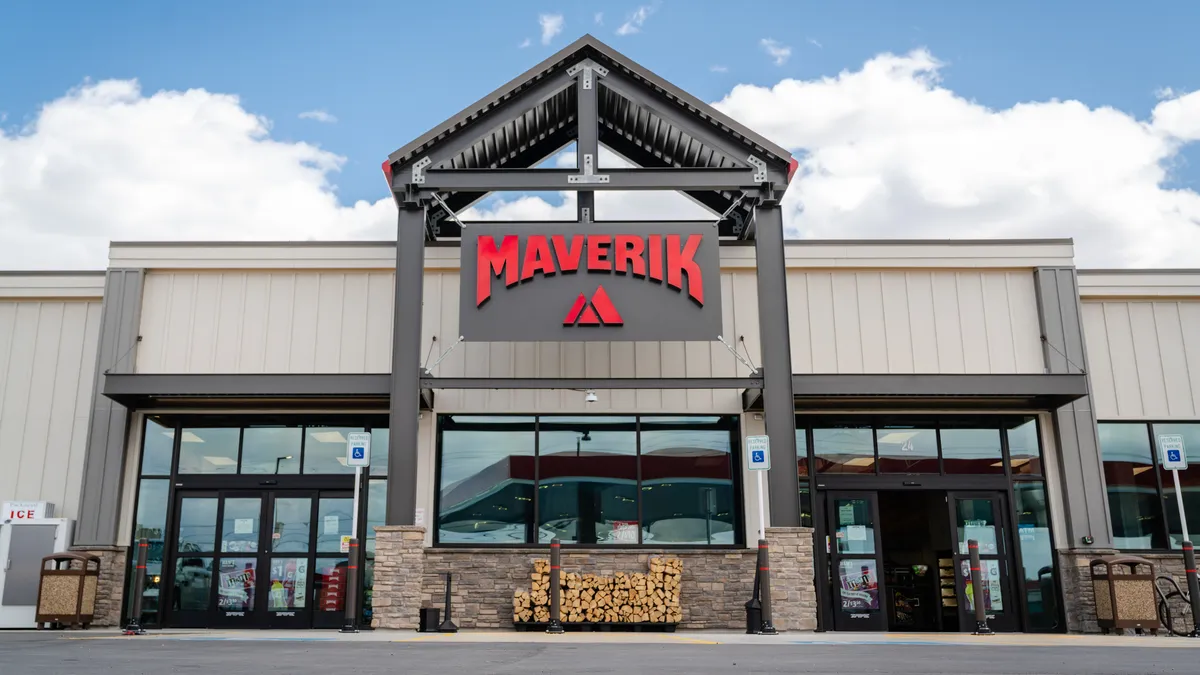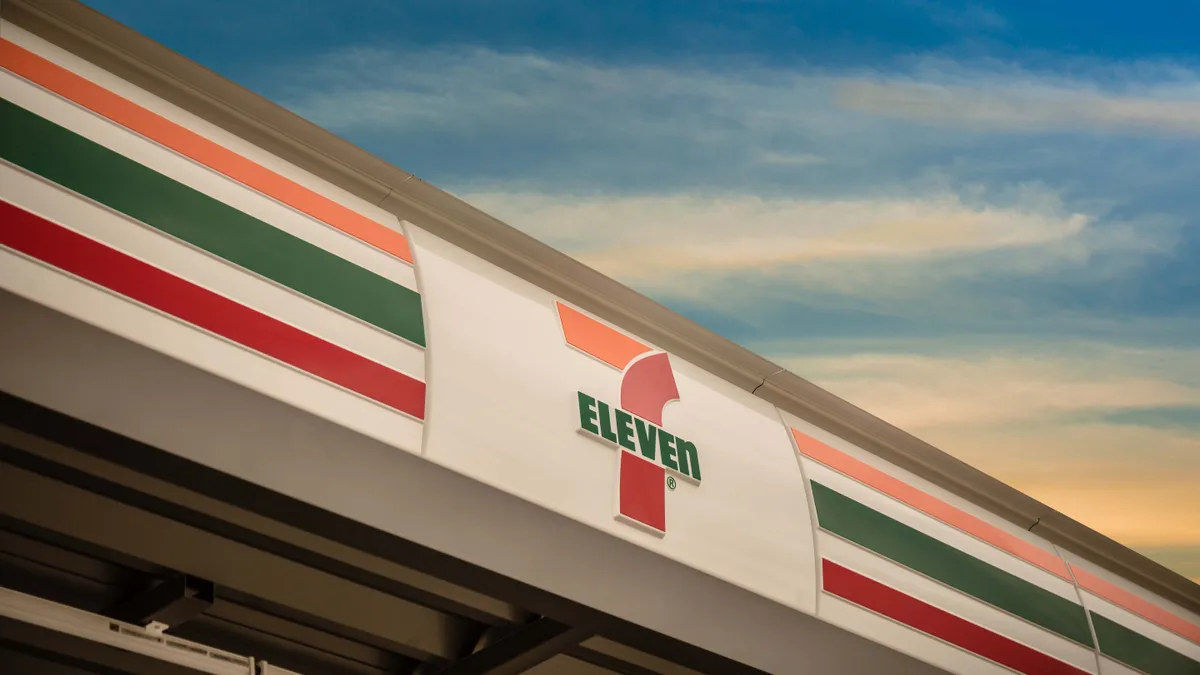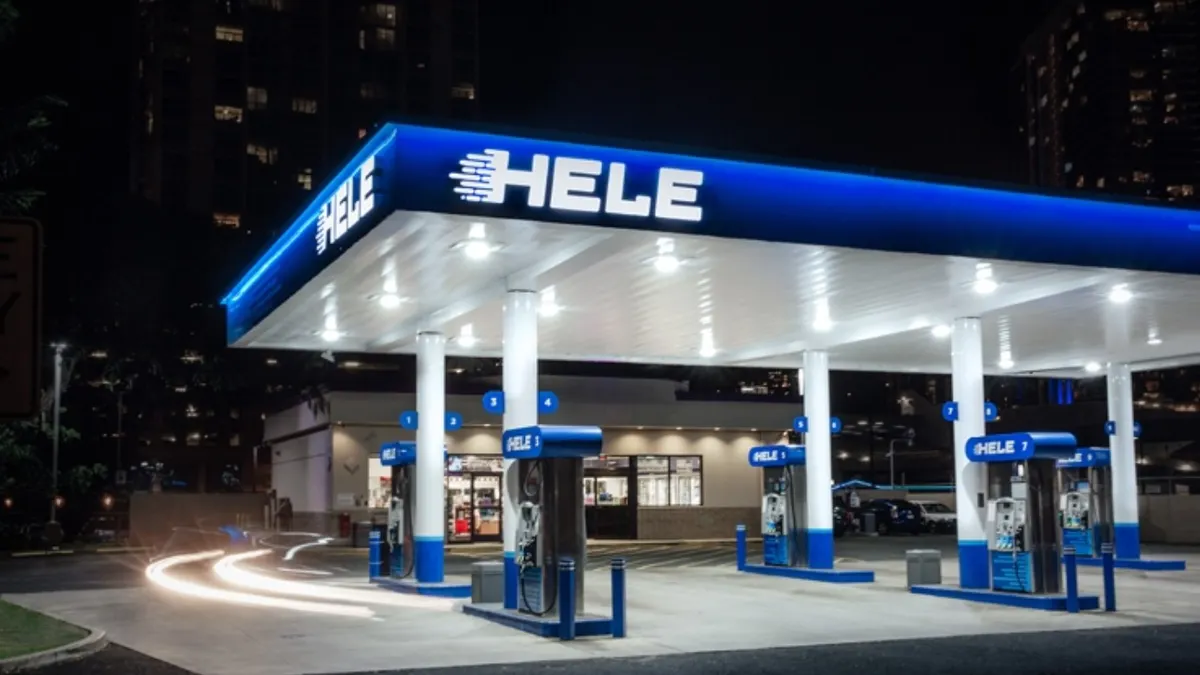Fueling Up is a column from C-Store Dive offering a fresh perspective on the top news and trends in the convenience store industry.
For those unfamiliar with the sagas of Mountain Express and SQRL, let’s do a quick recap.
Mountain Express, which acquired nearly 300 company-operated convenience stores under a variety of banners between 2020 and 2022 and supplied fuel to hundreds of others, filed for Chapter 11 bankruptcy in March 2023. When the Alpharetta, Georgia-based company shifted to Chapter 7 by that August — thus liquidating all of its assets — several former employees, as well as the bankruptcy court, revealed that the company’s toxic work environment and leadership’s financial mishandlings were major factors that led to its demise.
In late 2023, SQRL, also relatively unknown at the time, burst onto the c-store landscape when it acquired 210 of Mountain Express’s old locations from real estate investment trust Blue Owl Capital. Although SQRL’s founder said it aspired to reach 500 locations by the end of 2024, the company quickly found itself with severe liquidity issues. This resulted in several rounds of layoffs, multiple investigations by the Department of Labor and, ultimately, a $17 million sale of its c-store leases to another entity that continues to spiral out of control amid multiple bankruptcy filings.
The collapses of Mountain Express and SQRL have captivated the c-store industry over the past year and a half. But lost in the messy bankruptcy filings and accusations of forgery, fraud and unhealthy company cultures are the lessons they can offer many of today’s c-store retailers — and what these stories say about the current state of the industry.
Don’t underestimate the c-store industry
I’ve spent the past year speaking with several of the former employees and bankruptcy lawyers who've had a first-row seat to the demise of Mountain Express and SQRL. One of the core commonalities between the two, according to most of these folks, is that both companies tried to grow way too quickly without establishing a foundation for their retail operations.
When speaking about both companies, Roy Strasburger, a former c-store operator and current CEO of retail services firm StrasGlobal, said he believes that SQRL and Mountain Express were looking to grow via acquisition as fast as they could to simply sell off the locations afterwards, with no intentions of running c-store operations long-term.
Although both companies implemented a sale-leaseback strategy, there was never any indication that they intended to ditch their c-store operations. In fact, both companies openly shared their aggressive plans to become top c-store operators in the U.S.
Strasburger pointed out that steadily rising gasoline margins have contributed to the spike in M&A across the industry. He’s convinced the people running Mountain Express and SQRL — both of whom had no convenience retailing experience prior to their rampant acquisitions — were only looking at the fuel margins to make profits.
“SQRL and Mountain Express, I’m sure, were thinking that all they’ve really got to do is buy the stores and put the gallons through it, they’ll make their margins, and that’s how they’re going to cash flow their way out,” Strasburger said.
One of the most glaring mistakes SQRL and Mountain Express made was not doing due diligence into the assets they acquired and not investing in the locations once purchased. In both cases, forecourts never consistently had gasoline, while the insides of the stores were often dilapidated.
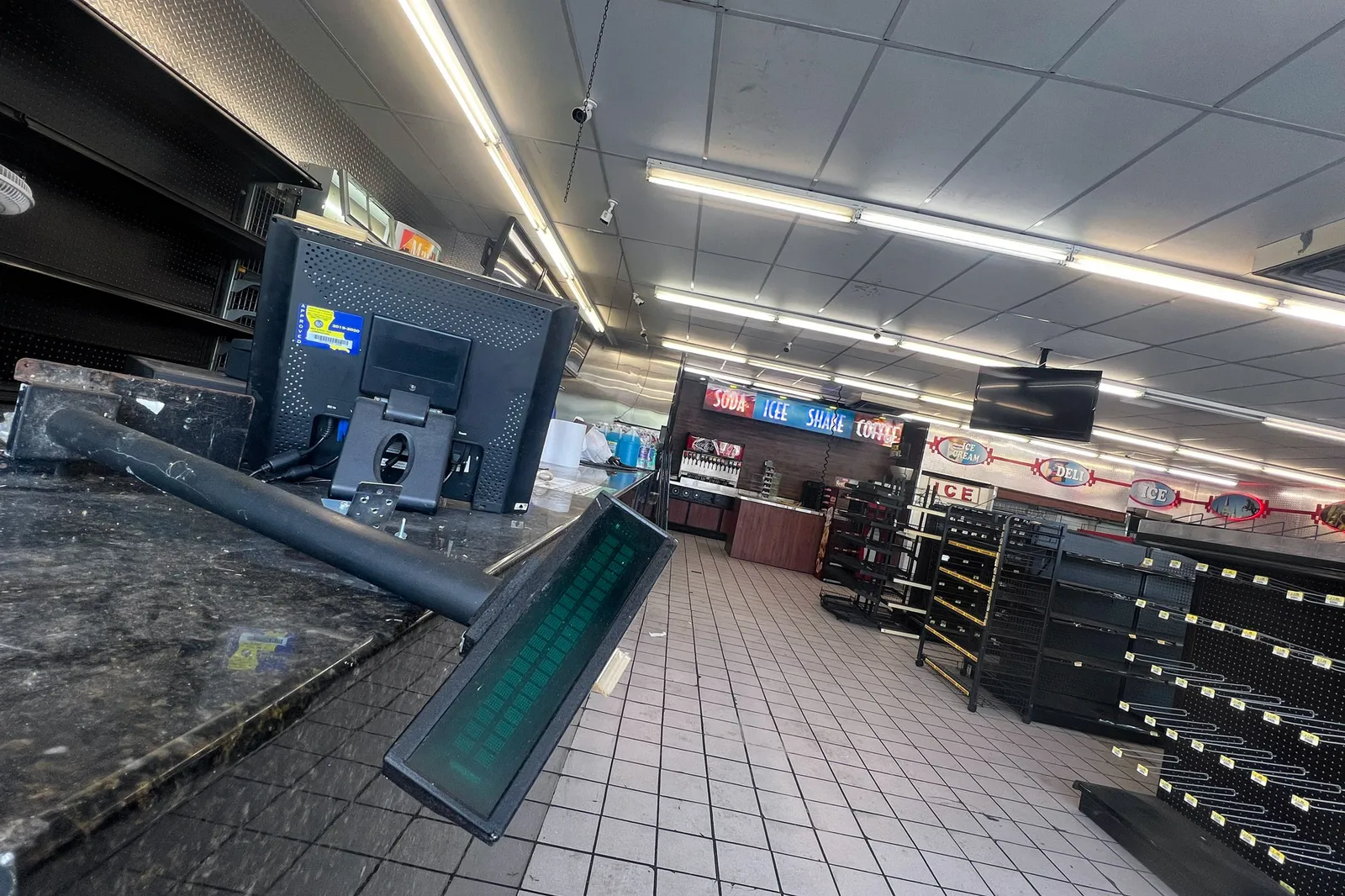
Both companies, Strasburger believes, underestimated what it takes to run a convenience store business, and likely figured that simply acquiring stores at a rapid clip would keep them profitable.
The infrastructure and attention to detail required“exponentially” increase with the more stores you have, he said. Both companies overlooked this.
“It's a really complicated business that people don't realize when they're trying to get into it and do a fast roll-up and sell off to somebody, which is what I think SQRL and Mountain Express were trying to do,” he said.
One prominent industry executive — who wished to be unnamed due to the sensitive nature of these companies — agreed with Strasburger. He added that although the real estate and fuel can lead to profitability, the c-store business requires immense strategy and execution at the customer level, which didn’t appear to be present in these situations.
“It’s not enough to have a cool logo, great brand and thoughts about how you can roll out a strategy,” he said. “You have to have somebody that really understands the customer, and wants to understand the customer every day.”
It’s what you do with it that matters
In season 3, episode 11 of “Seinfeld,” Jerry's car gets stolen, so he’s forced to rent one. But when he arrives at the rental facility, they inform him that although he made a reservation, they’ve run out of cars.
A frustrated Jerry laments to the associate: “So you know how to take the reservation, you just don’t know how to hold the reservation — and that's really the most important part of the reservation.”
When asked to share his thoughts on what c-store retailers can learn from SQRL’s and Mountain Express’ situations, the industry executive echoed this moment in Seinfeld. A successful M&A strategy, he said, isn’t just about acquiring stores but about what you do with them afterwards.
“This feels more like somebody thought there was a good idea there,” he said. “It didn't work out, and that shouldn't be a reflection on the industry, but on that individual's ability to execute, and to have a plan.”
“You've got to be able to scale internally, as opposed to trying to bolt a whole bunch of stores together, which just flat out doesn't work.”

Roy Strasburger
A former c-store operator and current CEO of StrasGlobal
For smaller or relatively new c-store retailers looking to go on a buying spree similar to those from Mountain Express or SQRL, this executive suggests starting with one store, and not buying any others until that one location is thriving.
“Even if somebody is a super high performing operator of stores, they would rather continue to focus on a limited portfolio than expand with the risk of losing focus,” he said.
Strasburger agreed, adding that retailers looking to grow need to first develop a system and culture to keep their growth sustainable.
“You've got to be able to scale internally, as opposed to trying to bolt a whole bunch of stores together, which just flat out doesn't work,” he said.



